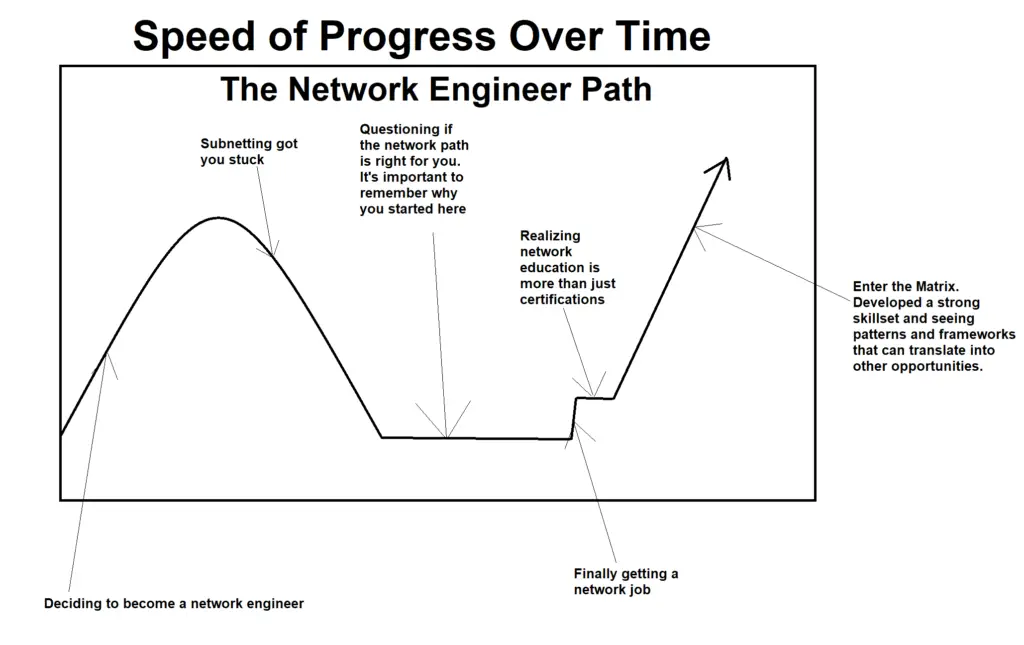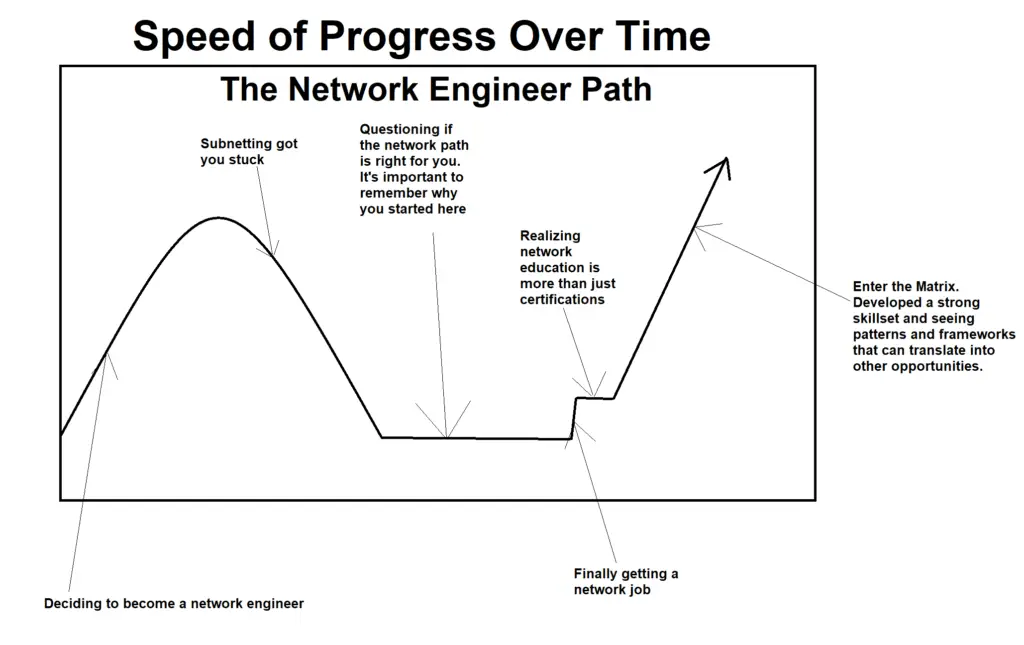How to Become a Network Engineer
The tech industry was a lucrative choice for me when first choosing career paths. I read many reviews and articles saying that you could make 6 figures in the industry without a degree.
At the time, not having a degree while making 6 figures was ideal for my situation. So that was the route I pursued.
Not long after pursuing this industry, I found that the Network Engineering role was highly in demand and fit above criteria.
I wanted to become a Network Engineer.
Within two years’ time I became a Network Engineer.
How to Become a Network Engineer
Eat, Pray, Networks
The best advise I’ve received to become a network engineer was:
“… to fall in love with networks.”
Which meant to love everything about it. Switches. Routers. OSI Model. To breath it. To obsess over it.
And as with the nature of love, the deeper it is when the object of your love is more known.
Knowing Networks vs Having the CCNA
Chances are you have heard of the CCNA – the industry standard for all things networking. Cisco as the network industry leader owns this certification. By proxy means that all things networks (other companies) have a derivative based on Cisco technology. Making this certificate a de facto standard for all network engineers.
To know networks is to have a CCNA, but to have a CCNA doesn’t mean you know networks.
By that I mean seasoned Network Engineers will likely have a CCNA. But not all CCNA holders will have intimate knowledge with networks. But it’s okay, this takes time.But the CCNA is a must to start.
The CCNA is in some sense a badge of being in the networking club. It provides the foundations as well as labbing experience to help the network engineer transition.
You’ll soon learn about the number one asked networking interview question:
“What are the 7 layers of the OSI model?”
In no time you’ll learn how people are able to connect from a remote part of the world all the way back home.
The Hype and Low
Setting the goal to become a network engineer will take falling in love with networks. Even as much, it will take extreme level-headedness.
In startups there is an idea that all successful companies go through an initial expansion of progress followed by a momentary decline. This is very similar to the network engineering path.
At first, your studying is filled with passion and your learning progress catapulted from 0 to 100 very quickly.
Then, there is this lapse of realizing your progress has slowed.
I don’t write this to be discouraging. I write this in order to be realistic. Worthwhile goals require endurance.
Worthwhile goals require endurance
Pushing passed this is the key. It’s good to write down “your why” early so you can point to it and remember why you started.
Here’s what the progress looks like:

Here’s how “your why” notes taped somewhere you’d remember it could look like:
I want to become a network engineer because I really do love networks. The routers, switches and the technologies that allow people to communicate globally amazes me. People have lived thousands of years without connectivity, and now networks provide an opportunity for people to communicate. Really communicate. Empathize. Networks have been around for less than a 100 years. The earliest human fossils is 200,000 years old. That’s less than 0.0005% of humanity’s time on earth. Tremendous progress already – Google.com allowing you to instantly know a random fact, Amazon.com bringing food directly to your house, and even worldwide collaboration for health advancements. This is just the beginning. I get to be a part of it.
A High Income without the CCNP
In IT, certifications will open the doors for you. Instead of looking for work, the difficulty will be in ignoring or politely saying no to recruiters.
Couple those certificates with relevant experience, and you’ll become an unstoppable force. Highly in demand and highly paid. By way of anecdote, here are a couple notes on income:
- I personally make 6 figures working specifically with network technology. I do not have a CCNP.
- I have met a diversity of people (diverse in race, gender, etc) who make 6 figures in networks without a college degree who also do not have a CCNP.
Key Takeaways
If you take away anything from this blog post and are inspiring to become a Network Engineer, here are some highlights:
- Fall in love with networks – This is important when learning about networks levels you. The more you know about networks, the more you’ll love it.
- Write “your why” you want to become a network engineer – Write “your why” on a sticky note. It can help with the battle against wavering determination. You can always point back to that note and remember to push through.
Highly Recommended:
I’ve never recommended other technology learning resources on my blog. But I do have to tout this one.
My favorite website I keep returning to for relevant technology information is PluralSight.
There is training here that I’ve used that is spot on to next steps in my career.
Check it out. It includes a complete CCNA training course with exam prep questions as well.
If you’re a glutton for punishment it also includes CCNP level training.

